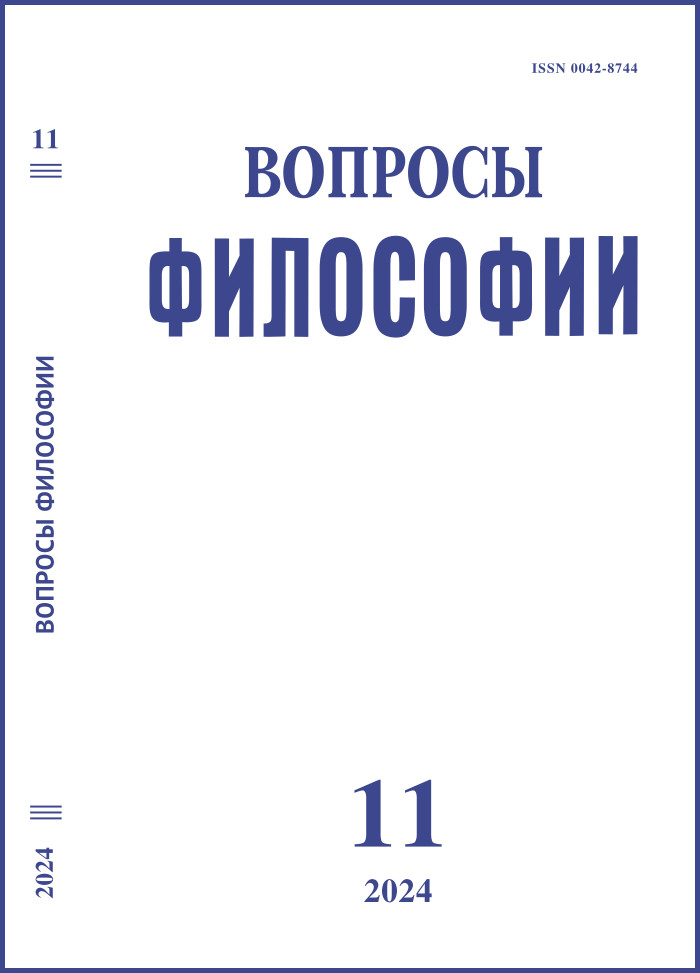Nature, Understanding, the Other: Ecohermeneutic Perspectives of N.N. Strakhov’s Philosophy (Reflections on the Book)
DOI:
https://doi.org/10.21146/0042-8744-2024-11-134-144Keywords:
N.N. Strakhov, nature, ecology, understanding, the Other, hermeneutics, ecohermeneuticsAbstract
In 2021, Pushkinskiy Dom publishing house published a monograph by V.A. Fateev N.N. Strakhov: Personality. Creation. Epoch. This book can be called one of the most detailed studies dedicated to the Russian philosopher: six and a half hundred pages present the views of N.N. Strakhov, the formation and transformation of his philosophical views, life events, discussions with contemporaries, disputes with ideological opponents, and most importantly, the subsequent controversy around his works up to the present day. V.A. Fateev creates a broad panorama of the life and work of N.N. Strakhov, however, the format of reflection on the book allows us to turn to specific thematic angles of his philosophical views. We can talk about the interdisciplinary nature of N.N. Strakhov’s works: having united natural sciences, humanitarian knowledge and religious issues on his philosophical path, he turns out to be surprisingly relevant today when working with cognitive strategies of Russian ecophilosophy. In particular, turning to ecohermeneutics, as one of these cognitive strategies, allows us to take a fresh look at the reasoning of N.N. Strakhov about man and his place in the world, about space, about understanding and communication in the cultural and historical field of Russian philosophy. This approach defines the philosophical specificity of what seems to be a familiar ecological issue: the necessity of caring for the planet is revealed in the other face of Russian cosmism, where the interpretation of nature implies an organic understanding of the Other and its unique chosenness, regardless of whether the interlocutor is an individual person or an entire world

